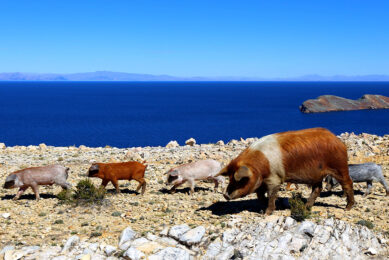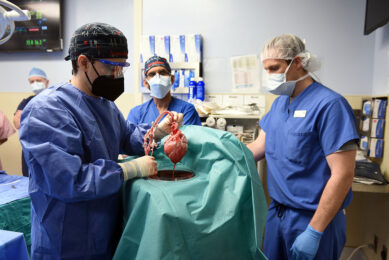Experts respond to pig MRSA claim
Purdue University experts have responded to a recent New York Times opinion piece that tried to establish pigs as a source of MRSA infection for humans calling it ‘highly speculative’.
Methicillin-resistant Staphylococcus aureus (MRSA), can be found anywhere in nature, according to Paul Ebner, a livestock microbiologist. While he said there has been an increase in the number of these infections and that pigs and other animals can be carriers, the vast majority of infections come from skin-to-skin contact with infected humans.
Making assumptions based on limited studies or information is a big jump and there is no proof to link MRSA in humans to pigs and pig operations at this time, said Ching Ching Wu, professor of veterinary pathobiology and head of microbiology in Purdue’s Animal Disease and Diagnostic Laboratory. Wu said there is more scientific evidence to support the spread of MRSA among humans and from humans to animals rather than from animals to humans.
A University of Iowa study mentioned in the Times column was a pilot study that looked at only two farms, and only one of them had the organism. Another Dutch study was also inconclusive, according to the Purdue experts.
The comments come in response to the March 12, New York Times piece by Nicholas Kristof, titled “Our Pigs, Our Food, Our Health”.©
Related article
⇒ Questions and answers around MRSA in pigs©
©










